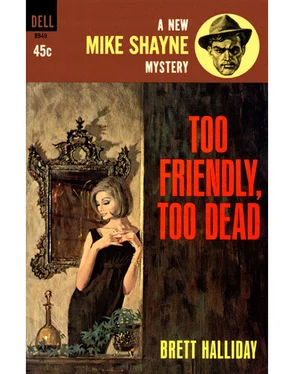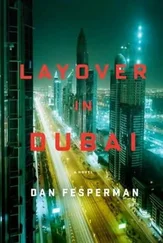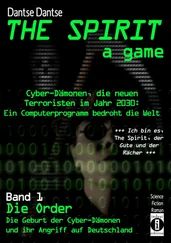Dan Fesperman - The Double Game
Здесь есть возможность читать онлайн «Dan Fesperman - The Double Game» весь текст электронной книги совершенно бесплатно (целиком полную версию без сокращений). В некоторых случаях можно слушать аудио, скачать через торрент в формате fb2 и присутствует краткое содержание. Жанр: Шпионский детектив, на английском языке. Описание произведения, (предисловие) а так же отзывы посетителей доступны на портале библиотеки ЛибКат.
- Название:The Double Game
- Автор:
- Жанр:
- Год:неизвестен
- ISBN:нет данных
- Рейтинг книги:3 / 5. Голосов: 1
-
Избранное:Добавить в избранное
- Отзывы:
-
Ваша оценка:
- 60
- 1
- 2
- 3
- 4
- 5
The Double Game: краткое содержание, описание и аннотация
Предлагаем к чтению аннотацию, описание, краткое содержание или предисловие (зависит от того, что написал сам автор книги «The Double Game»). Если вы не нашли необходимую информацию о книге — напишите в комментариях, мы постараемся отыскать её.
The Double Game — читать онлайн бесплатно полную книгу (весь текст) целиком
Ниже представлен текст книги, разбитый по страницам. Система сохранения места последней прочитанной страницы, позволяет с удобством читать онлайн бесплатно книгу «The Double Game», без необходимости каждый раз заново искать на чём Вы остановились. Поставьте закладку, и сможете в любой момент перейти на страницу, на которой закончили чтение.
Интервал:
Закладка:
If the itinerary had been solely up to me, we probably would have hopped a train to Switzerland-Bern, Geneva, or some alpine lodge. My main goal was to establish the means, motive, and opportunity for sexual congress, because at that point we were still virgins. We’d had several notable near misses-frantic, half-naked encounters when we’d narrowly dodged discovery by her parents, by my dad, and, memorably, by a Vienna policeman on foot patrol in the Stadtpark, well after midnight.
Litzi had bolder ambitions. She proposed a whirlwind tour behind the Iron Curtain-hop across the Czech border to Prague, then onward to darkest East Germany for stops in Dresden and Berlin before returning to Vienna by overnight train. We would thrill to the cloak-and-dagger doings of the beleaguered locals while enjoying the freewheeling sexual atmosphere reputedly engendered by three decades of godless Communism.
It took weeks of planning to secure the visas and tickets, a chore in which I secretly (or so I thought) availed myself of Dad’s consular connections. Each of us left behind a note saying we were sleeping over with friends for a few nights. By the time everyone figured out what was really up, we were well across the border. To our way of thinking, it was our launch into adulthood.
The first day went well enough, once we got over the initial awkwardness of traveling as a couple. Czech border authorities hardly glanced at our passports, which I found a little disappointing, and the atmosphere that we at first regarded as mysteriously oppressive soon began to seem merely drab and gloomy. If anyone was keeping tabs on us, we were too wrapped up in each other to notice, especially once we reached the faded glories of Prague, which in those days was coated liberally with soot and decrepitude. We shared sausages and tall mugs of pilsner-ID? Who needs an ID? This was Bohemia! — and I happily showed her all the places where I’d hung out as a fourteen-year-old, and the square where Soviet tanks had rolled in when I was twelve.
The only real disappointment was our innkeeper, who, far from being a Marxist libertine, assigned us to rooms three floors apart, then watched our comings and goings like a strict old aunt. We slept together anyway, dodging her on the creaking back stairway. It was bliss, I have to say, although I’ve often wondered if Litzi felt the same, since seventeen-year-old boys aren’t exactly the world’s most solicitous lovers.
It was while waiting for departure to East Germany at the Prague train station that we first noticed someone shadowing us. A man in a brown wool coat seemed to take a special interest as we moved from a baker’s kiosk to the newspaper stand. Then he conspicuously followed us onto the platform.
We had window seats in one of those cramped compartments with facing benches, three passengers per side, and a sliding glass door with curtains. The compartment was full, and rank with sweat. Our watcher flitted past the door at least four times during the three-hour ride to the border, and on each occasion he made a point of looking at us through the glass. Finally Litzi stood up and brusquely closed the curtains, an action almost immediately countermanded by an old matron seated by the door who scolded Litzi in a surly burst of Czech. Litzi, who knew a little of the language, told me later she’d said, “The rest of us have nothing to hide.”
We remained on edge as we arrived at the border, but even though the document checks took forever-the East Germans were thorough, as Germans usually are-within an hour we were back under way, and the man in brown was nowhere to be seen. We relaxed as the train crawled along the banks of the winding Elbe, enjoying a dusky view of fairytale beeches and rolling hills.
I switched on a light and took out my book, a novel by ex-spy E. Howard Hunt, who at the time was awaiting sentencing for his Watergate crimes. I’d chosen it mostly for its title, The Berlin Ending, since that was to be the final city on our tour, and my next home.
The train wasn’t due to stop until Dresden, so when the brakes shrieked and the cars groaned to a halt at a small mountain village a few miles east of Bad Schandau, everyone looked up in annoyance. By then it was nearly dark, and no passengers were waiting on the platform. Then I saw a dozen or so Volkspolizei, or Vopos, come pouring out of the tiny station house, flashlights swiveling, whistles blowing.
Litzi looked at me, and the crabby woman by the door watched us both as if her worst suspicions had been confirmed. There were heavy footsteps in the corridor, followed by muffled shouting. Several Vopos ran past our window. Another slid open the door of the compartment. Scanning the six of us, he read aloud from an official looking paper.
“Fraulein Strauss? Herr Cage?”
“Ja?” Litzi answered weakly. I shut my book, having just reached a scene in which the authorities were converging on the heroine at a small cafe near the Brandenburg Gate. Litzi nudged me with her foot.
“Ja,” I answered.
“Come with me,” he said in German.
“Why?” I asked.
“You are not to ask questions! Come now.”
We reached for our bags but he waved us off.
“Leave those! Come now!”
He took me roughly by the arm and escorted us onto the platform, where more Vopos were waiting. Two took Litzi by either arm and headed across the cobbles toward a door on the right. My escort took me left, to a dim room where he flicked on a buzzing fluorescent tube, sat me down at a small table, then departed, shutting the door behind him. After waiting five minutes I opened the door, only to find two Vopos on guard.
“Back inside!” one shouted, but the door was open just long enough for me to hear muffled shouts from the room where they’d taken Litzi. The guards pushed me back inside and slammed the door. My spirits sank further when I heard the groan of a diesel engine and felt a rumble through the floor. Our train was leaving.
Maybe half an hour passed before the man in the brown coat entered. He shouted an order in an unfamiliar language-Czech? Russian? — and a Vopo brought a bottle of mineral water with two glasses. He poured some for himself, lit a cigarette, and watched me for several seconds. Then he addressed me in excellent English with a Prussian accent.
“That book you are reading, the one by the criminal CIA man, how did you select it?”
“You pulled us in because of that?”
“How did you select it?”
“It’s my father’s. I’m borrowing it. I liked the title.”
“How many condoms did you bring?”
“What?”
“There are a dozen still in your bag. Were you planning to use them all?”
I shrugged, blushing in spite of myself.
“Or were you planning to conceal something in them and transport it back into the West in your stomach?”
“That’s crazy.” Did he really think we were smuggling drugs? Or were they going to plant some on us and haul us off to jail?
“Why else would you have so many for only two nights more?”
“They’re cheaper in bulk.”
He said nothing for a minute or two. He stubbed out his cigarette and lit another. I reached for the water bottle and he didn’t stop me. It was a cheap local brand, gassy and harsh, but it calmed me.
“Your father, he is a diplomat?”
He gave special emphasis to the final word, as if it were a pejorative term, or an outright falsehood.
“Yes.”
He smirked.
“In that case, you may think of me as a diplomat as well.” He snorted under his breath. “What else does he like to read? More things like this Hunt trash?”
“You’d have to ask him. He’s a collector.”
“I am sure. What are his duties?”
“At his job?”
“Of course at his job. Do you know of any special duties?”
Читать дальшеИнтервал:
Закладка:
Похожие книги на «The Double Game»
Представляем Вашему вниманию похожие книги на «The Double Game» списком для выбора. Мы отобрали схожую по названию и смыслу литературу в надежде предоставить читателям больше вариантов отыскать новые, интересные, ещё непрочитанные произведения.
Обсуждение, отзывы о книге «The Double Game» и просто собственные мнения читателей. Оставьте ваши комментарии, напишите, что Вы думаете о произведении, его смысле или главных героях. Укажите что конкретно понравилось, а что нет, и почему Вы так считаете.












